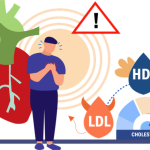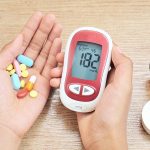Which Cholesterol Drug Is Safest?

Cholesterol is a naturally occurring substance in the human body that is essential for the proper functioning of the body. However, an excess of cholesterol can cause various health problems, such as heart disease, stroke, and other cardiovascular diseases. Therefore, cholesterol-lowering drugs have been developed to help individuals manage their cholesterol levels.
There are several types of cholesterol-lowering drugs, including statins, niacin, bile acid sequestrants, and cholesterol absorption inhibitors. However, which cholesterol-lowering drug is the safest is a matter of debate among medical professionals.
In this article, we will discuss in detail the safety profile of each cholesterol-lowering drug and determine which one is the safest.
Statins
Statins are the most commonly prescribed cholesterol-lowering drugs. They work by blocking the enzyme responsible for producing cholesterol in the liver. This, in turn, reduces the amount of cholesterol in the bloodstream.
The safety of statins has been extensively studied, and they are generally considered safe and effective. However, like all medications, statins can cause side effects. The most common side effects of statins include muscle pain, weakness, and cramps.
In rare cases, statins can cause a serious condition called rhabdomyolysis, which is the breakdown of muscle tissue that can lead to kidney damage or failure. However, the risk of developing rhabdomyolysis is low, and it is generally considered safe to take statins.
Niacin
Niacin is a type of vitamin B3 that can also lower cholesterol levels. Niacin works by reducing the amount of LDL (bad) cholesterol in the bloodstream and increasing the amount of HDL (good) cholesterol.
Niacin can cause a flushing sensation, which is a warm, tingling feeling on the skin. This flushing is harmless and usually goes away on its own after a few minutes.
However, niacin can also cause more serious side effects, such as liver damage, gastrointestinal problems, and an increased risk of bleeding. Therefore, niacin is not recommended as a first-line treatment for cholesterol-lowering.
Bile Acid Sequestrants
Bile acid sequestrants are medications that bind to bile acids in the intestines, preventing them from being reabsorbed into the bloodstream. This, in turn, reduces the amount of cholesterol in the bloodstream.
Bile acid sequestrants are generally considered safe, and the most common side effect is gastrointestinal distress, such as constipation and bloating. However, bile acid sequestrants can also interfere with the absorption of other medications, so it is important to take them separately from other medications.
Cholesterol Absorption Inhibitors
Cholesterol absorption inhibitors are medications that prevent the absorption of cholesterol in the intestines. This, in turn, reduces the amount of cholesterol in the bloodstream.
Cholesterol absorption inhibitors are generally considered safe, and the most common side effect is gastrointestinal distress, such as diarrhea and abdominal pain. However, cholesterol absorption inhibitors can also interfere with the absorption of other medications, so it is important to take them separately from other medications.
Ezetimibe
Ezetimibe is a cholesterol absorption inhibitor that is commonly used to lower cholesterol levels. Ezetimibe works by preventing the absorption of cholesterol in the intestines, which reduces the amount of cholesterol in the bloodstream.
Ezetimibe is generally considered safe, and the most common side effect is gastrointestinal distress, such as diarrhea and abdominal pain. However, there have been some concerns that ezetimibe may increase the risk of cancer, but these concerns have not been confirmed.
Conclusion
In conclusion, all cholesterol-lowering drugs have some level of risk associated with them. However, statins are generally considered the safest and most effective cholesterol-lowering drugs.
Statins have been extensively studied and have been shown to reduce the risk of heart disease and stroke in people with high cholesterol levels. While there are some potential side effects of statins, such as muscle pain and weakness, the overall risk of developing serious side effects is relatively low.
Niacin and bile acid sequestrants are generally considered safe but have more significant side effects than statins. Niacin can cause liver damage and gastrointestinal problems, while bile acid sequestrants can cause gastrointestinal distress and interfere with the absorption of other medications.
Cholesterol absorption inhibitors, such as ezetimibe, are also generally considered safe but can cause gastrointestinal distress and may interfere with the absorption of other medications.
It is important to note that the safety of cholesterol-lowering drugs can vary depending on the individual and their medical history. It is important to speak with a healthcare provider before starting any cholesterol-lowering medication to determine the best course of treatment for each individual.
Additionally, lifestyle changes, such as regular exercise, a healthy diet, and quitting smoking, can also help manage cholesterol levels and reduce the need for medication.
Overall, statins are considered the safest and most effective cholesterol-lowering drugs. However, each medication has its own set of potential side effects, and it is important to discuss the risks and benefits of each medication with a healthcare provider before starting any treatment.





